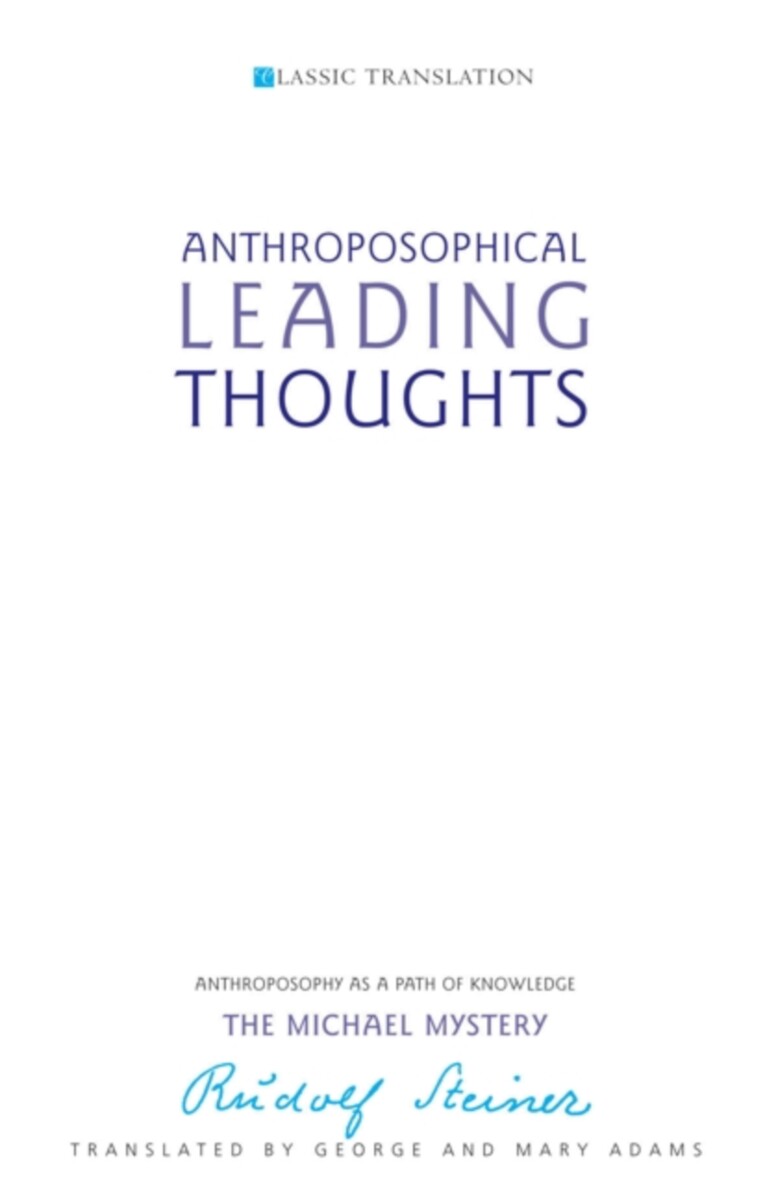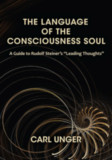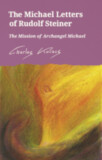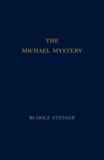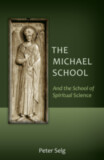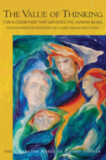Anthroposophical Leading Thoughts
Anthroposophy as a Path of Knowledge: The Michael Mystery (CW 26)
- Publisher
Rudolf Steiner Press - Published
1st December 1973 - ISBN 9781855840966
- Language English
- Pages 224 pp.
“Leading thoughts” and letters for members of the Anthroposophical Society (CW 26)
“The leading thoughts here given are meant to open up subjects for study and discussion. Points of contact with them will be found in countless places in the anthroposophic books and lecture courses, so that the subjects thus opened up can be enlarged upon and the discussions in the groups centered around them.” — Rudolf Steiner
This key volume contains Rudolf Steiner’s “leading thoughts,” or guiding principles, and related letters to members of the Anthroposophical Society. Using brief, aphoristic statements, Steiner succinctly presents his spiritual science as a modern path of knowledge, accompanied by “letters” that expand and contextualize the guiding thought.
These 185 thoughts constitute invaluable, clear summaries of Steiner’s fundamental ideas—indeed, they contain the whole of Anthroposophy. They are intended not as doctrine, but to stimulate and focus one’s study and discussion of spiritual science.
“Anthroposophy is a path of knowledge to guide the Spiritual in the human being to the Spiritual in the universe.... Anthroposophy communicates knowledge that is gained in a spiritual way.... There are those who believe that with the limits of knowledge derived from sense perception the limits of all insight are given. Yet if they would carefully observe howthey become conscious of these limits, they would find in the very consciousness of the limits the faculties to transcend them.” — Rudolf Steiner
This volume is a translation of Anthroposophische Leitsätze, Der Erkenntnisweg der Anthroposophie—Das Michael-Mysterium (GA 26).
Rudolf Steiner
Rudolf Steiner (b. Rudolf Joseph Lorenz Steiner, 1861–1925) was born in the small village of Kraljevec, Austro-Hungarian Empire (now in Croatia), where he grew up. As a young man, he lived in Weimar and Berlin, where he became a well-published scientific, literary, and philosophical scholar, known especially for his work with Goethe’s scientific writings. Steiner termed his spiritual philosophy anthroposophy, meaning “wisdom of the human being.” As an exceptionally developed seer, he based his work on direct knowledge and perception of spiritual dimensions. He initiated a modern, universal “spiritual science” that is accessible to anyone willing to exercise clear and unbiased thinking. From his spiritual investigations, Steiner provided suggestions for the renewal of numerous activities, including education (general and for special needs), agriculture, medicine, economics, architecture, science, philosophy, Christianity, and the arts. There are currently thousands of schools, clinics, farms, and initiatives in other fields that involve practical work based on the principles Steiner developed. His many published works feature his research into the spiritual nature of human beings, the evolution of the world and humanity, and methods for personal development. He wrote some thirty books and delivered more than six thousand lectures throughout much of Europe. In 1924, Steiner founded the General Anthroposophical Society, which today has branches around the world.


